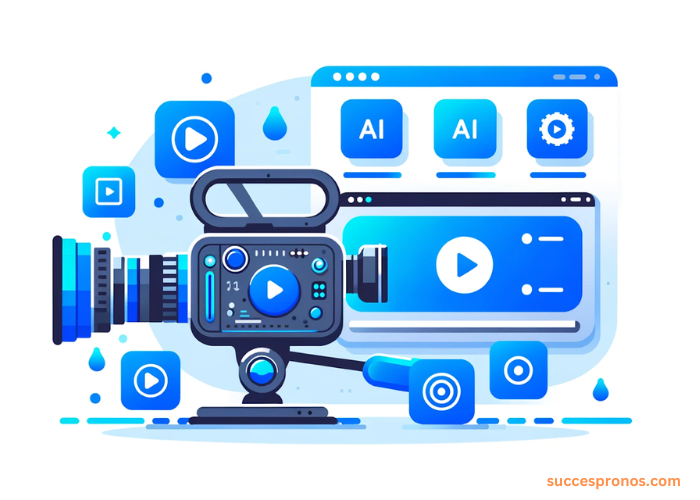
In the rapidly evolving world of digital content creation, artificial intelligence (AI) is a game-changer, especially in the realm of video production. This blog post delves into how AI is revolutionising the way we create videos, making it easier, faster, and more accessible for everyone—from amateur filmmakers to professional content creators—to bring their ideas to life.
The Evolution of Video Creation
Traditionally, video production has been a labour-intensive process that requires a range of skills, from scripting and storyboarding to filming and editing. Each step could take hours, if not days, of meticulous work, often necessitating a team of professionals. However, with the advent of AI in video creation, such as in how to make AI videos, these processes have been significantly streamlined, democratising the ability to produce high-quality videos.
What AI Brings to the Table
AI impacts almost every aspect of video production, simplifying complex processes and automating mundane tasks. Here are some key areas where AI is making a substantial difference:
1. Scriptwriting and Storyboarding
AI-powered tools can generate scripts based on a brief description or a set of keywords. These tools use natural language processing (NLP) to understand the context and create coherent and engaging narratives. Moreover, AI can suggest storyboards that align with the script, helping creators visualise the final product before any actual video work begins.
2. Video Editing and Assembly
AI can analyse hours of footage to select the best shots, a process that traditionally took editors countless hours. It can also automatically assemble clips based on the storyline, ensuring that the narrative flow is maintained. AI-driven editing tools can adjust the pacing, transition, and even the colour grading of the video, based on the mood and tone of the content.
3. Visual Effects and Animation
Creating visual effects and animation is another area where AI is making significant inroads. AI tools can generate complex animations or apply special effects without the need for specialised skills. This capability not only speeds up the production process but also opens up new creative possibilities.
4. Voiceovers and Audio
Text-to-speech technologies have advanced significantly, allowing AI to generate voiceovers in a variety of tones and styles. This technology is particularly useful for creators who may not have access to professional voice artists. Additionally, AI can enhance the audio quality by filtering out background noise and optimizing sound levels.
5. Personalization and Localization
AI can personalise video content for different audiences by altering aspects of the video such as the language, cultural references, or even the content itself, based on the viewer’s location and preferences. This level of customization was unimaginable a few years ago but is now possible at the click of a button.
The Impact on Creativity and Accessibility
One of the most significant impacts of AI in video creation is how it has made this art form more accessible. With AI, anyone with a creative idea can produce a video without needing technical skills or expensive equipment. This accessibility is empowering more people to express themselves creatively, leading to a more diverse range of content.
Moreover, while some fear that AI might stifle human creativity, the opposite appears to be true. AI is seen as a tool that removes the drudgery of technical processes, allowing creators to focus more on the creative aspects of video production. By handling the tedious and time-consuming tasks, AI lets creators spend more time brainstorming, experimenting, and refining their ideas.
Challenges and Ethical Considerations
Despite its benefits, the use of AI in video production is not without challenges. Issues such as copyright infringement and the potential for job displacement are concerns that need to be addressed. Ethical use of AI in content creation must be a priority, with clear guidelines and regulations to prevent misuse.
Looking Forward
As AI technology continues to advance, its integration into video production will only deepen, bringing more sophisticated tools that further simplify the creation process. Future developments could include more intuitive AI that can better understand human emotions and perhaps even predict audience reactions, tailoring content accordingly.
Conclusion
AI is transforming video creation, making it more accessible and efficient while opening up new possibilities for creativity. As this technology evolves, it promises to further democratise content creation, enabling more people to share their stories and ideas with the world. For anyone looking to explore the realm of video production, now is an exciting time to leverage AI and see where your creativity can take you.
This exploration of AI in video production highlights the immense potential of this technology to not only enhance efficiency but also to foster a richer, more diverse creative landscape. Whether you are a seasoned filmmaker or a novice content creator, AI tools can significantly elevate your video production process, allowing you to bring your most ambitious ideas to life with ease.